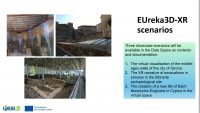By Harry Verwayen, General Director of the Europeana Foundation, and Sneška Quaedvlieg-Mihailović, Secretary General of Europa Nostra and Project Leader of the European Heritage Hub
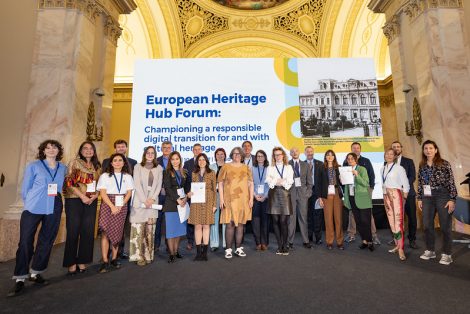
European Heritage Hub Forum 2024 © Felix Q Media / Europa Nostra
As Europe navigates a complex landscape marked by a dramatic climate crisis and escalating socio-political tensions, including wars at our doorsteps, as well as by the rise of artificial intelligence, the role of cultural heritage – digital, tangible and intangible- has never been more crucial. We therefore applaud the fact that in the Political Guidelines for the next European Commission, President Ursula von der Leyen acknowledges that cultural heritage embodies our European way of life, and is essential to shape the Europe of tomorrow.
In the digital realm, the previous European Commission made notable progress, introducing ambitious policies like Europe’s Digital Decade and the EU AI Act. These efforts reflect the EU’s commitment to a ‘Triple Transformation’ that integrates digital, green and social priorities. As the EU transitions to a new political landscape, building on these achievements is critical. The foundation is set – now, the new Commission must drive it forward.
Cultural heritage must not be overlooked in this ambitious transformation, requiring, above all, a genuine cultural shift. Cultural heritage is not merely a reflection of our past; it is a vital resource that can support a more equitable, inclusive and environmentally responsible Europe, all while enhancing its innovation potential and competitiveness on the global stage.
It is commendable that the EU acknowledges that Europe’s digital future should centre on people and values rather than technology. This presents an opportunity not to be missed by the heritage ecosystem, with our European heritage movement more structured and mobilised than ever.
Since the historic European Year of Cultural Heritage sparked momentum in 2018, the role of cultural heritage in advancing EU policy goals has gained recognition, leading to stronger collaboration among stakeholders across the continent. However, to truly harness the power of cultural heritage across policies, more must be done to integrate it as a cornerstone of Europe’s broader ambitions.
More recently, the EU-funded European Heritage Hub – led by Europa Nostra and 19 heritage actors that collectively involve and reach millions – has launched a compelling Call to Action to the EU, urging it to champion a socially and environmentally responsible digital transition for and with cultural heritage. This Call to Action leverages the Europeana Foundation’s expertise in digital transformation, outlining key priorities and challenges to advance the Hub’s shared vision.
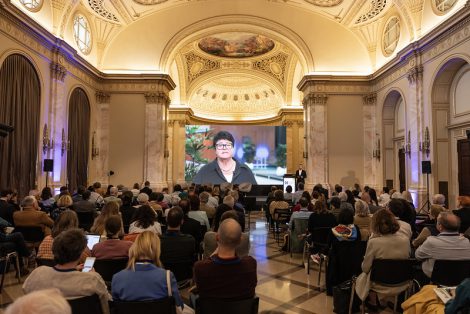
European Heritage Hub Forum 2024 – © Josef Rabara / Europa Nostra
Digital cultural heritage as a catalyst for positive change
Evidence shows that cultural heritage enhances social cohesion. Joining a local folk festival fosters identity as communities with higher cultural participation experience a stronger sense of belonging. Recent studies also link cultural engagement to better democratic outcomes, health and well-being.
However to fulfil its societal purpose, cultural heritage must be accessible to all. A robust public domain is vital for freely accessing and using our shared heritage. Reusing heritage in tourism products or video games fosters innovation, unlocks new economic opportunities and enhances Europe’s competitiveness. As the EU renews its leadership, we must therefore continue working together to counter the rise of national policies that restrict access to public domain content. This is crucial as AI offers new opportunities for disseminating public domain material, while also raising legal and practical challenges.
The need for accelerated digital transformation in cultural heritage is widely recognised, especially after COVID-19, which boosted online participation and urged institutions to embrace digital change. A striking example is the Louvre, which recorded 10.5 million virtual visitors in just 71 days of lockdown. Yet progress across Europe remains uneven, with a persistent digital divide among citizens, countries, institutions and their workforces.
To close these gaps, the EU must increase investment in the digital transformation of the heritage ecosystem, leveraging existing funding programmes like Digital and Horizon Europe. New instruments, such as the European Competitiveness Fund, should also be mobilised. We also advocate for the creation of a dedicated European Cultural Heritage Fund within the next Multiannual Financial Framework.
Despite the fragmented landscape, cultural heritage actors are increasingly committed to a socially and environmentally responsible digital transformation, redefining success by addressing issues like digital footprint or embedded bias. This holistic ‘triple transformation’ is no easy feat; it requires a new mindset and a fresh set of transversal competencies like ethics and change management. On a macro level, it requires the integration of our sector’s digital transition into broader transformation policies, beyond dedicated cultural agendas.
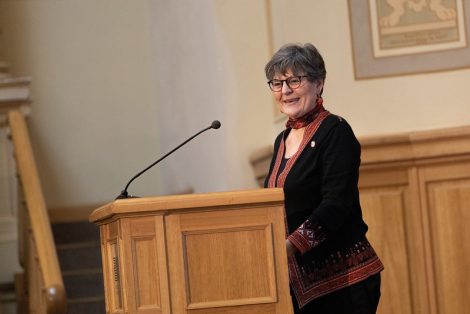
Sneška Quaedvlieg-Mihailović, Secretary General of Europa Nostra and Project Leader of the European Heritage Hub © Josef Rabara / Europa Nostra – Europa Nostra General Assembly 2024
New digital priorities in a changing EU political landscape
In the shifting EU political landscape, new priorities are emerging, particularly a growing focus on AI and the ongoing green ambition, which form the core of our Call to action.
With the adoption of its first legal framework on AI, the EU is embedding European values in the use of this technology, while the new Commission will now focus on unlocking its innovative potential. AI can revolutionise cultural heritage, but it also poses risks of bias, misrepresentation and misinformation. The heritage world, with EU support, should accelerate the development of ethical, human-centred AI principles aligned with Europe’s shared cultural legacy and values. These principles should shape the future AI strategy for cultural and creative industries, particularly with regard to heritage, as outlined in Commissioner Glenn Micallef’s Mission letter and during his confirmation hearing at the European Parliament.
While the European Green Deal has made historic strides, much work remains to turn its goals into action – and time is running out. Because cultural heritage digitisation is energy-intensive, the sector is increasingly focused on understanding, measuring and reducing its environmental impact. Also, investing in research and skills development is crucial. Heritage can drive climate action – whether by digitally altering masterpieces like done by the Prado Museum to raise awareness of the dramatic consequences of a 1.5°C temperature rise, or reusing audiovisual material published on europeana.eu to raise climate awareness in classrooms. The EU can indeed leverage culture-based climate solutions as key indicators and differentiators in its pursuit of global green leadership, also within the vital UNFCCC framework.
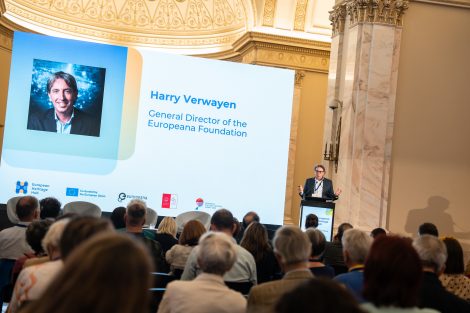
Harry Verwayen, General Director of the Europeana Foundation © Felix Q Media / Europa Nostra – European Heritage Hub Forum 2024 Bucharest
Our Call to Action to the EU
The relevance of cultural heritage for shaping Europe’s digital future cannot be overstated. Over the past years, we made significant strides in organising our sector, establishing a strong framework for collaboration, exemplified by the European Heritage Hub. This evolution has uniquely positioned us to tackle contemporary challenges and drive transformative change.
Consequently, we urge the new European Parliament and Commission to integrate the transversality our sector advocates for into upcoming EU priorities and funding frameworks. As discussions on the next Multiannual Financial Framework unfold, it is crucial that the digital transformation of cultural heritage remains a key investment focus.
Our cultural heritage offers a range of tangible and intangible benefits that go beyond the widely acknowledged – but still essential – positive intrinsic, social and human impacts. It can also position Europe as a global cultural leader, enhance its competitiveness and strengthen green and climate diplomacy on the world stage. The European Heritage Hub is committed to supporting these efforts in every possible way to advance this mission.
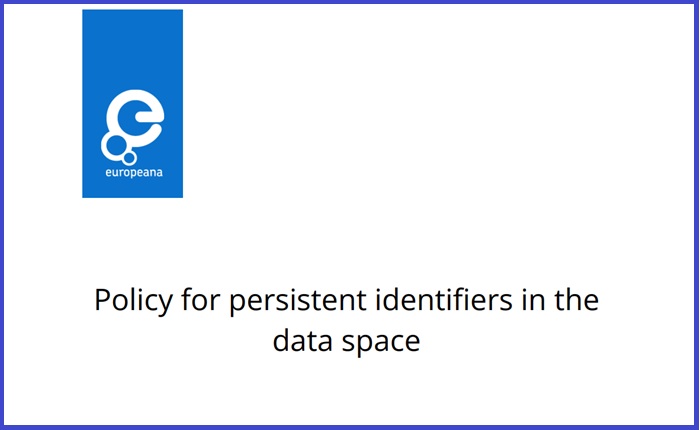


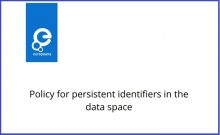

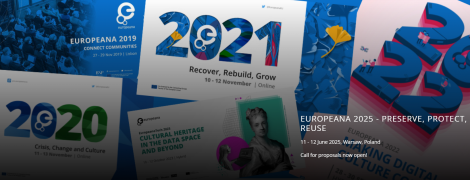
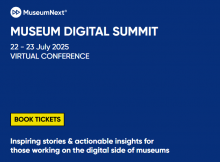
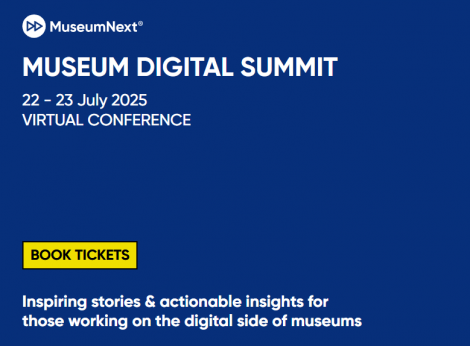
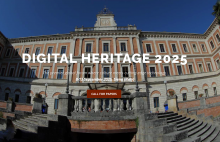
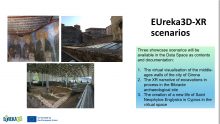
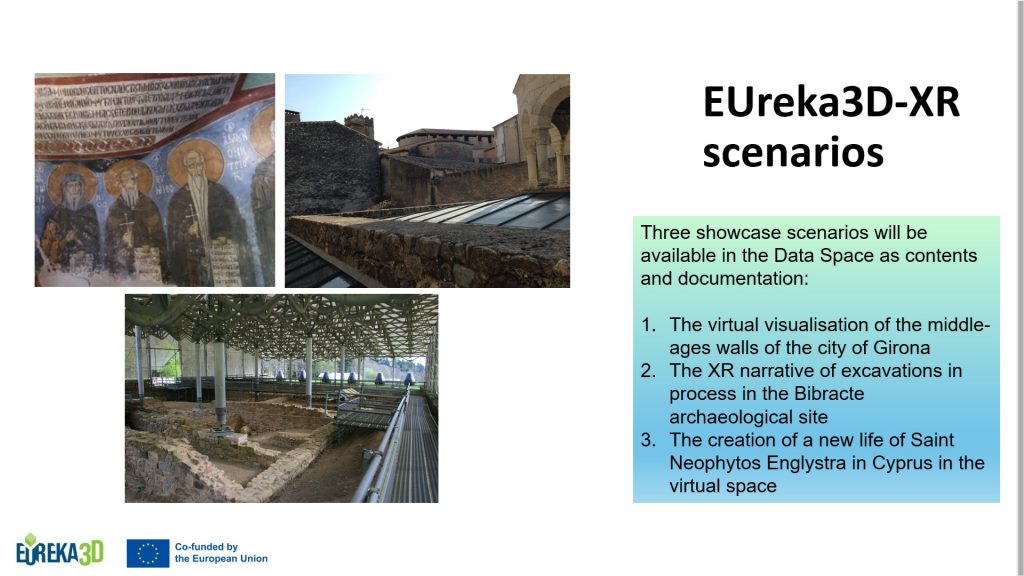
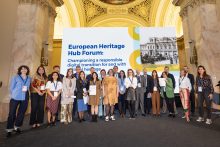




 The
The 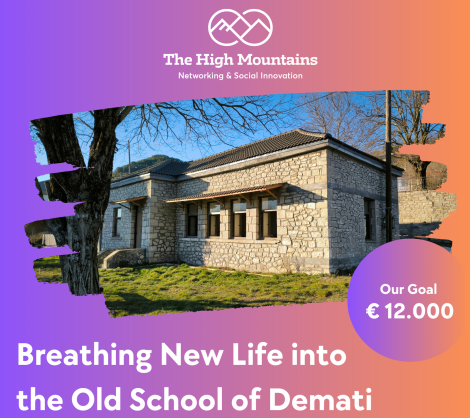
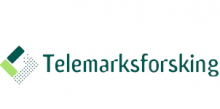
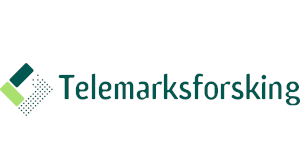
 If you have interesting news and events to point out in the field of digital cultural heritage, we are waiting for your contribution.
If you have interesting news and events to point out in the field of digital cultural heritage, we are waiting for your contribution.





























